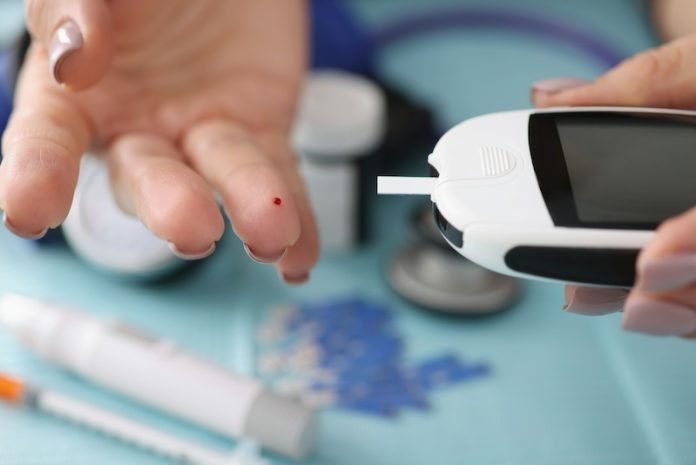
Diabetes is a chronic condition that affects how your body turns food into energy.
Monitoring blood sugar levels is a crucial part of managing diabetes, as it helps individuals maintain levels within a target range to prevent complications like kidney disease, nerve damage, and heart problems.
However, with the rise of continuous glucose monitors (CGMs) and the ease of using traditional glucometers, some people may wonder if there’s such a thing as checking blood sugar too often.
For most people with diabetes, particularly type 1 diabetes, frequent monitoring is essential. It enables them to make real-time decisions about food, activity, and medication that can help maintain blood sugar levels within a healthy range.
However, for others, especially some with type 2 diabetes not on insulin, frequent checks may not always impact management and could contribute to increased stress or anxiety.
The American Diabetes Association (ADA) offers general guidelines for how often someone should check their blood sugar. For individuals using insulin, testing multiple times per day is often recommended.
This might include checking before meals and snacks, at bedtime, before exercising, when they feel their blood sugar might be too low or high, and before and after critical tasks like driving.
On the other hand, the necessity for frequent glucose checks might be less for those with type 2 diabetes who do not use insulin.
These individuals might only need to check their blood sugar once a day or even less frequently, depending on their specific circumstances and the stability of their blood sugar levels.
Research indicates that the quality and frequency of blood sugar monitoring should be tailored to each individual’s needs.
A study published in the Journal of the American Board of Family Medicine found that for patients not using insulin, routine multiple daily testing might have a negligible effect on their overall glycemic control.
This study suggests that excessive monitoring could be a physical and financial burden without providing significant benefits for some patients.
Continuous glucose monitoring systems have changed the landscape of diabetes care, especially for type 1 diabetes. CGMs provide detailed, real-time data trends that help more precisely manage blood sugar levels.
They can alert users to sudden drops or spikes in blood sugar that might not be captured with routine finger sticks. For users of CGMs, the question isn’t how often they check their glucose (as the device does this automatically) but how they respond to and use the data they receive.
The psychological impact of monitoring blood sugar should also be considered. For some, frequent checks can lead to what is sometimes called “data overload,” where the constant focus on numbers can increase anxiety.
In contrast, others might find that regular monitoring reassures them and improves their sense of control over their condition.
In deciding the right frequency for checking blood sugar, consultation with healthcare providers is key.
They can help determine the most effective monitoring strategy based on the individual’s type of diabetes, medication regimen, level of blood sugar control, lifestyle, and overall health goals.
In conclusion, while regular monitoring of blood sugar is a cornerstone of diabetes management, more isn’t always better for everyone.
Balancing the need for precise blood sugar management with the individual’s quality of life and avoiding unnecessary stress from over-monitoring are important considerations.
Tailoring the frequency of blood sugar checks to fit personal needs and medical advice can help manage diabetes effectively without overwhelming the individual.
If you care about blood sugar, please read studies about why blood sugar is high in the morning, and how to cook sweet potatoes without increasing blood sugar.
For more information about health, please see recent studies about 9 unhealthy habits that damage your brain, and results showing this stuff in cannabis may protect aging brain, treat Alzheimer’s.
Copyright © 2024 Knowridge Science Report. All rights reserved.



